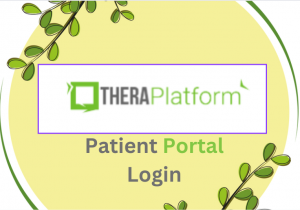 Attention-deficit/hyperactivity disorder (ADHD) is a neurodevelopmental disorder that affects both men and women. However, women with ADHD may face unique challenges, particularly during their menstrual cycle. Hormonal changes that occur during the menstrual cycle can lead to fluctuations in ADHD symptoms, making it more difficult for women to manage their symptoms during certain times of the month. These changes can include an increase in impulsivity, hyperactivity, and difficulty with attention and focus.
Attention-deficit/hyperactivity disorder (ADHD) is a neurodevelopmental disorder that affects both men and women. However, women with ADHD may face unique challenges, particularly during their menstrual cycle. Hormonal changes that occur during the menstrual cycle can lead to fluctuations in ADHD symptoms, making it more difficult for women to manage their symptoms during certain times of the month. These changes can include an increase in impulsivity, hyperactivity, and difficulty with attention and focus.
Research has shown that women with ADHD may experience an increase in symptoms during the premenstrual phase of their menstrual cycle. This can include an increase in impulsivity, hyperactivity, and difficulty with attention and focus. Hormonal changes that occur during this phase, such as an increase in estrogen and progesterone, can lead to changes in neurotransmitters in the brain that can exacerbate ADHD symptoms.
Estrogen and progesterone are hormones that are involved in regulating the menstrual cycle and play a key role in the development and function of the brain. An increase in these hormones during the premenstrual phase of the menstrual cycle can lead to changes in the levels of neurotransmitters in the brain, which can exacerbate symptoms of ADHD.
Research has shown that an increase in estrogen and progesterone can lead to changes in the levels of dopamine and norepinephrine, which are neurotransmitters that play a key role in attention, focus, and impulse control. Dopamine is a neurotransmitter that is involved in the brain’s reward system, and is also involved in regulating attention and motor activity. Norepinephrine is a neurotransmitter that plays a role in the brain’s stress response and is also involved in regulating attention and focus.
An increase in estrogen and progesterone can lead to an increase in the levels of dopamine and norepinephrine, which can result in an increase in symptoms of impulsivity, hyperactivity, and difficulty with attention and focus. This can worsen the symptoms of ADHD which can make it more difficult for the individual to manage their symptoms.
It’s important to note that this is just one aspect of the complex interplay of hormones and neurotransmitters on ADHD and that more research is needed to fully understand the mechanisms at play.
In addition to the physical symptoms of the menstrual cycle, such as cramps and bloating, women with ADHD may also experience emotional symptoms such as mood swings, irritability, anxiety and depression, which can further contribute to feelings of discomfort and low mood.
Women with ADHD may also face additional challenges in terms of diagnosis, treatment and support, as their symptoms may be overlooked, dismissed or misunderstood. This can lead to a delay in diagnosis, and a lack of appropriate treatment and support.
It’s important to acknowledge these challenges and to understand that every woman with ADHD experiences these changes differently, and the severity of symptoms can vary from person to person. With proper understanding, support, and appropriate treatment, women with ADHD can learn to manage their symptoms and lead fulfilling lives.
It’s also important to consider other factors that may be contributing to the symptoms of ADHD, such as co-occurring conditions, medication side-effects, and environmental stressors. A comprehensive evaluation by a healthcare professional trained in treating ADHD, such as a psychologist or psychiatrist, is needed to understand how hormones and other factors interact to affect ADHD symptoms.
It’s important to note that every woman is different, and not all women with ADHD experience an increase in symptoms during their menstrual cycle. For those who do, it’s important to be aware of this pattern and to take steps to manage it. This could include keeping a symptom diary, where you can track your symptoms and their fluctuations throughout the menstrual cycle. This can help you to identify patterns and to plan for times when symptoms are likely to be more severe.
It’s also important to note that many of these strategies are also helpful for managing symptoms of ADHD in general, such as developing a daily routine, breaking down tasks, and using reminders. Lastly, self-care is crucial, make sure to take care of yourself, by getting enough rest, eating well, and engaging in activities that you enjoy.
Valiant Minds Counseling, LLC is dedicated to providing comprehensive and compassionate care to women with ADHD. Our mission is to empower women with ADHD to lead fulfilling lives by providing comprehensive and holistic support, education and treatment.
We recognize that women with ADHD face unique challenges, particularly during their menstrual cycle, and we are committed to helping them understand and manage these fluctuations in symptoms. Our team of trained professionals will work with each woman to develop a personalized treatment plan that addresses her specific needs and goals.
We will provide a safe and non-judgmental space for women with ADHD to discuss their experiences, and we will work with them to develop the skills and strategies needed to manage their symptoms. We will also collaborate with other healthcare providers, as needed, to ensure a comprehensive and holistic approach to care.
We will also provide education and support to families, partners, and loved ones of women with ADHD, to help them understand and support the unique challenges faced by women with ADHD.
Our goal is to help women with ADHD to overcome the barriers that prevent them from reaching their full potential, and to empower them to lead fulfilling and meaningful lives.
Valiant Minds Counseling, LLC is committed to providing the highest quality care, and to continuously expanding our knowledge and understanding of ADHD in women, to ensure that we are able to provide the most current and effective treatment options.






